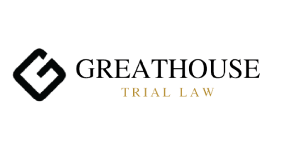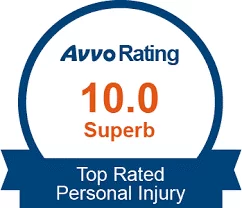Being injured on the job can be terrifying, and it can have lasting consequences. While employees are eligible for workers’ compensation on their first day, there can still be some confusing terms that make the process difficult. One of these terms is called a “third-party claim.” Let’s talk about what a third-party claim is and how it works.
What is a third-party claim?
When workers are injured, they can file a workers’ compensation claim against the company to get the compensation they need to cover medical expenses and lost wages. However, in some cases, the injured worker can also file a third-party liability claim against a person or entity who is not the employer or employed by the employer.
The third-party claim allows the injured person to seek compensation from the person who caused the accident, even if the injury occurred at work. There are a few different examples of when an employee could file a third-party claim:
- Suppose an employee is driving a company vehicle and is involved in a car accident. In that case, the employee may bring a third-party claim against the at-fault driver.
- Manufacturers may be held accountable through a third-party product liability claim when tools or equipment are defective and harm someone.
- Suppose an employee is injured when working on a property not owned by the employer. In that case, an employee can file a claim against the property owner.
- Employees can also file third-party claims against manufacturers of a toxic substance that led to an occupational illness or injury.
- If a customer injures an employee, the employee can file a lawsuit against the customer and file for workers’ compensation.
How does a third-party claim work?
Employers with three or more employees are mandated to have workers’ compensation insurance, providing injured employees with medical care and lost wages. However, this type of insurance doesn’t require the employee to prove that the employer did anything wrong since fault is not at play. To file and win a third-party claim, employees must prove that the third party was negligent and responsible for the injury.
Negligence, in this case, means that the third party did something wrong or that they failed to do something that would have prevented the injury. To win the lawsuit, the employee must prove three things: they had a work-related accident, the third party owed a duty of care, the third party failed in their duty of care, and that the employee suffered injuries as a direct result of the lack of care.
With a third-party claim, employees can occasionally sue employers. Even though employees can’t sue employers under standard workers’ compensation, employees can sue them if the employer knew there was a potential for injury and did nothing. An example of this would be if an employer knew that there was a toxic substance in the workplace but allowed employees to continue as if there was no danger.
Call an Attorney
If you’ve been injured in the workplace due to someone else’s negligence, calling an attorney is the best way to ensure that you get the compensation you deserve. Figuring out whether or not you have a claim can be complicated, and an experienced personal injury can help you understand your rights. Here at Greathouse Trial Law, we want to help you understand your rights.
Contact us today at 678-310-2827 or complete our online form for your free case evaluation. We aim to serve Atlanta’s great people and give a voice to the voiceless.
Copyright© 2022. Greathouse Trial Law. All Rights Reserved
The information in this blog post (“post”) is provided for general informational purposes only. It may not reflect the current law in your jurisdiction. No information contained in this post should be construed as legal advice from the individual author or the law firm, nor is it intended to be a substitute for legal counsel on any subject matter. No reader of this post should act or refrain from acting based on any information included in or accessible through this post without seeking the appropriate legal or other professional advice on the particular facts and circumstances at issue from a lawyer licensed in the recipient’s state, country or other applicable licensing jurisdiction.
Greathouse Trial Law
260 Peachtree Street NW
Suite 803
Atlanta, GA 30303
(678) 310-2827
https://atltriallaw.com/


